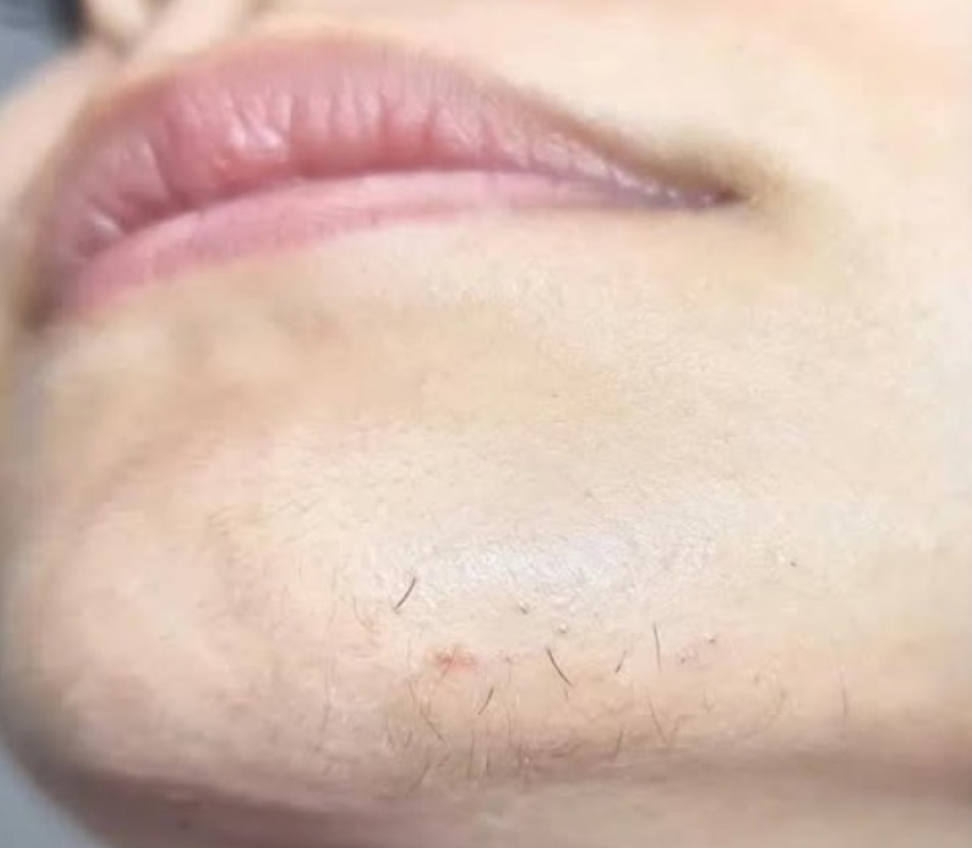If you’re a woman and have noticed coarse hairs appearing on your chin, you’re definitely not alone — and it’s not something to brush off. While the occasional stray hair may be harmless, persistent or sudden hair growth can signal deeper health concerns that deserve attention.
In this article, we break down what chin whiskers may indicate, what’s normal, what’s not, and when it’s time to check in with a healthcare provider.
1. Hormonal Imbalances
One of the most common reasons women experience chin hair growth is a hormonal imbalance, particularly elevated levels of androgens — the “male” hormones like testosterone. Even a slight increase in androgens can lead to coarse facial hair growth, especially on the chin or jawline.
Potential causes include:
-
Polycystic Ovary Syndrome (PCOS)
-
Menopause
-
Thyroid disorders
-
Changes in birth control or hormone therapy
✅ What to do: If you’re also experiencing symptoms like irregular periods, acne, or unexplained weight gain, it’s worth scheduling a blood test to check your hormone levels.
2. Polycystic Ovary Syndrome (PCOS)
PCOS is a hormonal disorder that affects up to 1 in 10 women of reproductive age. One of its hallmark symptoms is hirsutism — unwanted facial and body hair growth due to excess androgens.
Additional PCOS symptoms may include:
-
Irregular or missed periods
-
Fertility challenges
-
Acne or oily skin
-
Dark skin patches (especially around the neck or armpits)
✅ Health Tip: A proper diagnosis is essential. Treatment often includes lifestyle changes, hormone-regulating medications, or insulin management.
3. Genetics and Ethnicity
Sometimes, chin whiskers are simply in your DNA. Women with Mediterranean, South Asian, Middle Eastern, or Eastern European heritage may naturally have more facial and body hair.
✅ Reminder: If your mother, aunt, or grandmother had similar hair growth, it might just be hereditary — not a medical issue.
4. Aging and Menopause
As estrogen levels decline with age — especially during perimenopause and menopause — the hormonal balance can shift. Lower estrogen and relatively higher androgen levels may result in chin hair growth, while scalp hair might thin.
✅ Managing Tip: Consider gentle hair removal methods like tweezing, dermaplaning, or natural remedies. If it worsens or you notice other signs of imbalance, consult your doctor.
5. Rare but Serious Conditions
In uncommon cases, rapid or excessive chin hair growth may be due to adrenal gland disorders or ovarian tumors, both of which can significantly increase androgen production.
Warning signs may include:
-
A sudden change in facial hair growth
-
Deepening of the voice
-
Muscle growth
-
Severe acne
-
Changes in menstrual cycle
✅ When to seek help: If facial hair appears suddenly or is accompanied by other masculinizing features, see an endocrinologist or gynecologist for a full evaluation.
Final Thoughts: Don’t Ignore What Your Body’s Saying
While a few chin hairs here and there are totally normal — especially with age — persistent, coarse, or sudden facial hair growth could signal something more. Whether it’s a hormonal imbalance, PCOS, or simply genetics, it’s important to listen to your body and seek clarity when things change.
🙋♀️ And remember: Facial hair doesn’t define your femininity. Many women deal with it, and there’s no shame in managing it — what matters most is your overall health and well-being.
SEO Tags:
-
chin hair causes in women
-
female facial hair hormones
-
what chin whiskers mean
-
PCOS facial hair symptoms
-
sudden chin hair growth female
-
menopause and facial hair
-
chin whiskers health signal
